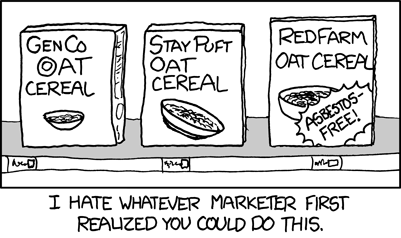In the original text, the only ingredients that could be used in the production of beer were water, barley, and hops. The law also set the price of beer at 1-2 Pfennig per Maß. The Reinheitsgebot is no longer part of German law: it has been replaced by the Provisional German Beer Law (Vorläufiges Deutsches Biergesetz (Provisional German Beer-law of 1993)), which allows constituent components prohibited in the Reinheitsgebot, such as wheat malt and cane sugar, but which no longer allows unmalted barley.
Note that no yeast was mentioned in the original text. It was not until the 1800s that Louis Pasteur discovered the role of microorganisms in the process of fermentation; therefore, yeast was not known to be an ingredient of beer. Brewers generally took some sediment from the previous fermentation and added it to the next, the sediment generally containing the necessary organisms to perform fermentation. If none were available, they would set up a number of vats, relying on natural yeast to inoculate the brew.
Hops are added to beer to impart flavours but also act as a preservative, and their mention in the Reinheitsgebot meant to prevent inferior methods of preserving beer that had been used before the introduction of hops. Medieval brewers had used many problematic ingredients to preserve beers, including, for example, soot and fly agaric mushrooms. More commonly, other herbs had been used, such as stinging nettle and henbane.
The penalty for making impure beer was also set in the Reinheitsgebot: a brewer using other ingredients for his beer could have questionable barrels confiscated with no compensation.
German breweries are very proud of the Reinheitsgebot, and many (even brewers of wheat beer[2]) claim to still abide by it.
[edit] History
The Reinheitsgebot was introduced in part to prevent price competition with bakers for wheat and rye. The restriction of grains to barley was meant to ensure the availability of sufficient amounts of affordable bread, as the more valuable wheat and rye were reserved for use by bakers. Today many Bavarian beers are again brewed using wheat and are thus no longer compliant with the Reinheitsgebot.
The Reinheitsgebot formed the basis of legislation that spread slowly throughout Bavaria and Germany. Bavaria insisted on its application throughout Germany as a precondition of German unification in 1871, to prevent competition from beers brewed elsewhere with a wider range of ingredients. The move encountered strong resistance from brewers outside Bavaria. By restricting the allowable ingredients, it led to the extinction of many brewing traditions and local beer specialties, such as North German spiced beer and cherry beer, and led to the domination of the German beer market by pilsener style beers. Only a few regional beer varieties, such as Kölner Kölsch or Düsseldorfer Altbier, survived its implementation.
Regulations similar to those of the Reinheitsgebot were incorporated into various guild regulations and local laws all over Germany, and in 1952, they were incorporated into the West German Biersteuergesetz (Beer Taxation Law) and vorläufiges Biergesetz (Provisional Beer Law). Many brewers objected to the law at the time, disagreeing more with the amount of the tax than the ingredient requirements. The law initially applied only to bottom-fermented ("lager") beers, but brewers of other types of beer soon accepted the law as well.
In May 1987, a European Court of Justice ruling led to the Reinheitsgebot being lifted, allowing ingredients beyond what is listed in the Biergesetz; this meant that anything allowed in other foods was thus also allowed in beer. The ingredient requirements have since been moved from the Biersteuergesetz into the regular food additives laws, though beer brewed according to the Reinheitsgebot receive special treatment as a protected, "traditional" food.
The vast majority of German breweries continue to comply with the Biergesetz, often claiming compliance with the Reinheitsgebot even when it is patently incorrect (for example, for wheat beers, which were prohibited by the Reinheitsgebot), using this compliance as a valuable marketing tool.
Until superseded by the change in EU law, the Reinheitsgebot was also enforced in Greece from the early 19th century due to a law by the first Greek king, Otto (originally a Bavarian prince) that had remained in effect.









![Craft A Brew - Safale S-04 Dry Yeast - Fermentis - English Ale Dry Yeast - For English and American Ales and Hard Apple Ciders - Ingredients for Home Brewing - Beer Making Supplies - [1 Pack]](https://m.media-amazon.com/images/I/41fVGNh6JfL._SL500_.jpg)

















































